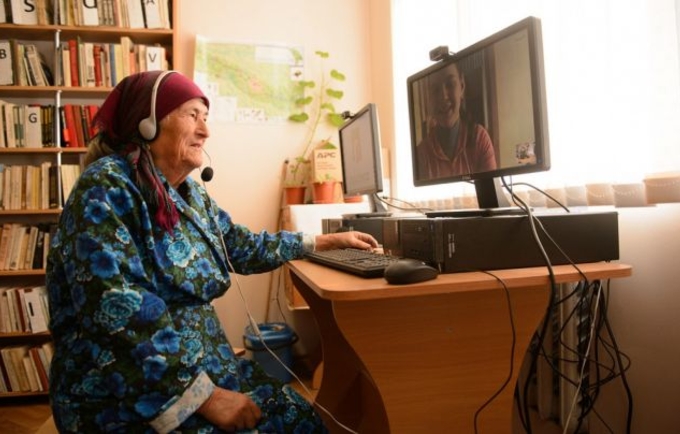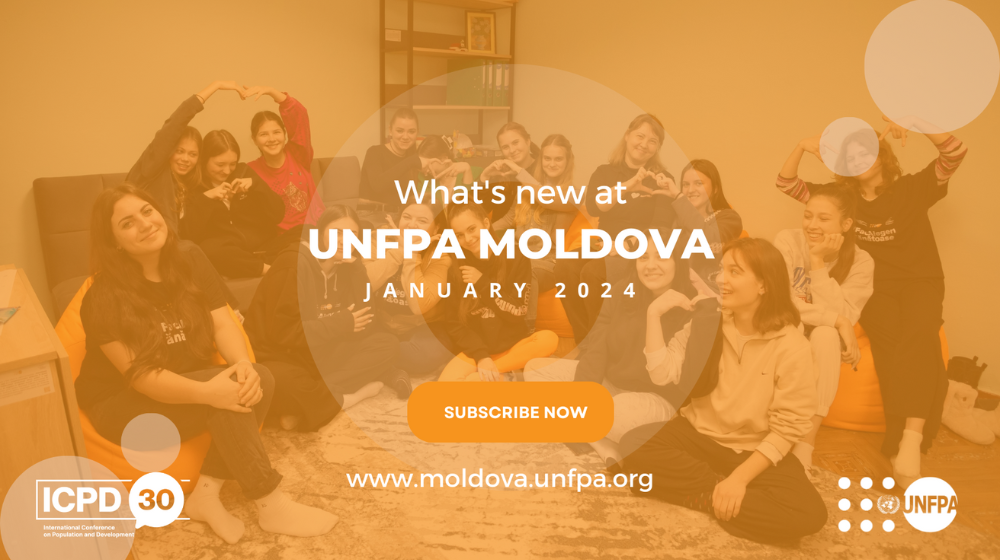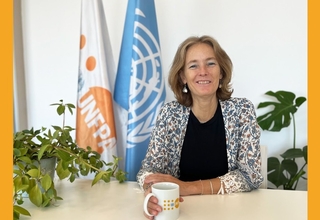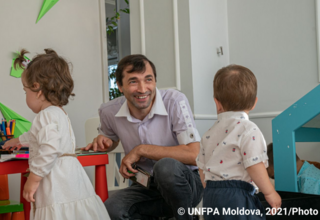COVID-19 pandemic affected significantly the whole population, especially the older persons. They often live alone and isolated, with limited access to information technologies. According to Analysis of the Risks Posed by COVID-19 on the Older Persons in the Republic of Moldova, developed under the auspices of the UN Population Fund (UNFPA), 57% of people aged over 55 (pre-retirement) said it was very difficult to cope with self-isolation. As to the poverty rate, it is also higher among them compared to the country average – 20% of people aged 60+ said they lost their jobs, compared to 6% of those aged between 30 and 44. These data were presented at an online conference on the eve of the International Day of Older Persons, marked annually on 1 October and organised by UNFPA Moldova in partnership with the Ministry of Health, Labour and Social Protection, the UN Resident Coordinator Office, the UN Office for Human Rights (OHCHR) and Help Age International.
‘Protection of the elderly should be at the heart of all our intervention efforts without leaving anyone behind. The data presented today is necessary so that we can get ready and intervene with appropriate policies,’ said Simon Springett, United Nations Resident Coordinator.
‘My message to the older persons is that they are not alone. At UNFPA we initiated actions to support the elderly by involving young volunteers. We thus improve the dialogue between generations. In the near future, other impactful activities will be carried out, such as donating mobile phones to older persons for a better online communication, and delivery of packages of food, hygienic products and personal protection equipment’, said Nigina Abaszada, UNFPA Resident Representative in Moldova.
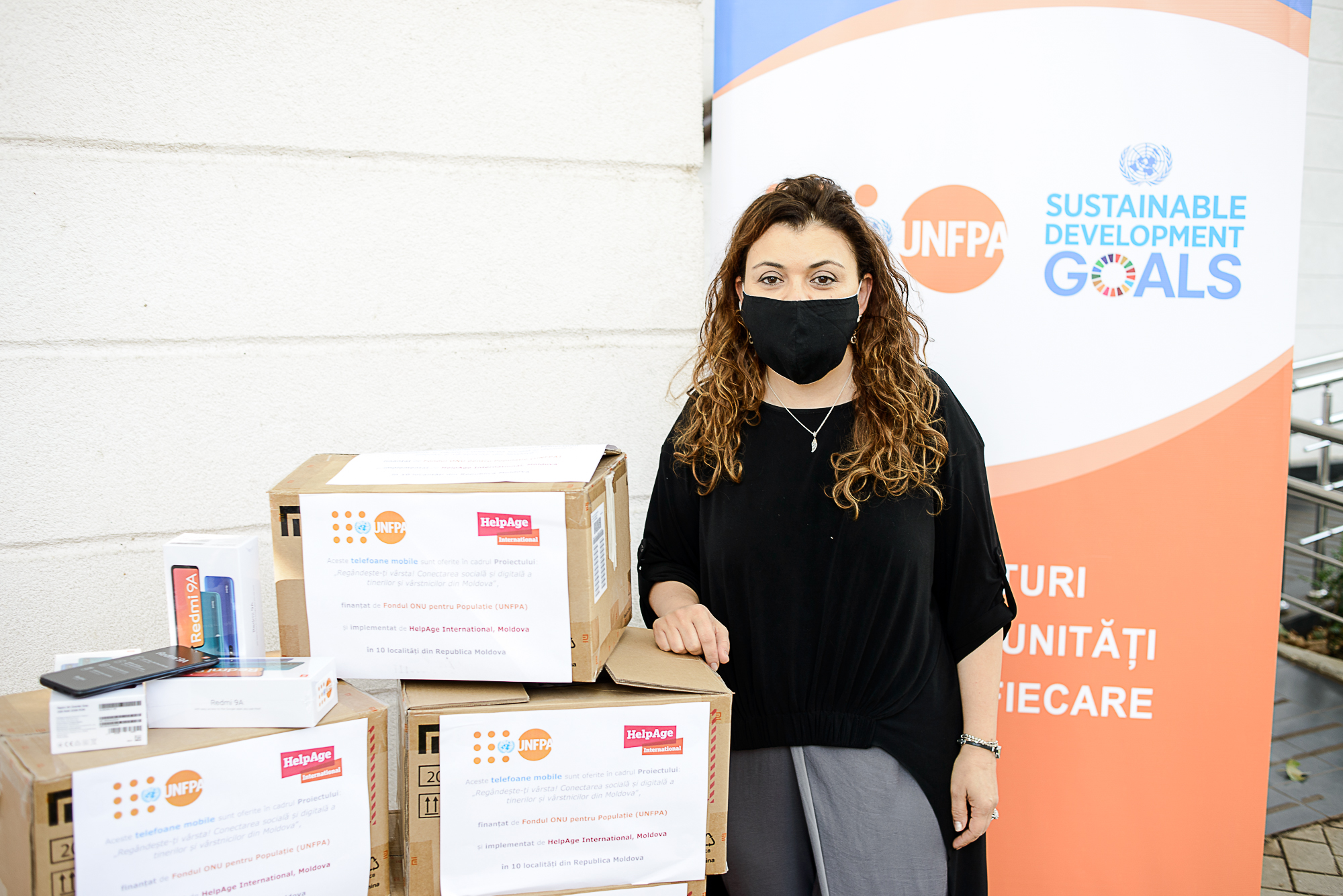
In order to meet the needs of the elderly, the Ministry of Health, Labour and Social Protection (MHLSP) implemented a series of actions. ‘So that the income of this population group does not get affected, we increased the guaranteed monthly income from MDL 1107 to MDL 1300, and to avoid the risk of contamination with Covid-19, the social benefits, along with hot lunches and hygiene products were distributed at home. In addition to what was achieved, we continue to focus on people’s quality of life and created a special fund for the older people’, said Djulieta Popescu, State Secretary at MHLSP.
Present at the event, Lilia Melnicenco, aged 69, coordinator of a group of volunteers in Soldanesti, stated that the isolation and lack of communication with loved ones affected her more than the material situation. ‘I tried to keep calm. So as not to get too much emotionally affected, I looked for samples on the internet and started crocheting. While in the process, you have to count the stitches, be careful not to miss a row and this keeps my mind focused. I crocheted masks too, which I am going to wear during the winter. But most of all I was glad that, together with the volunteers, we resumed our activities to support the older people in Soldanesti’, said the woman, who is at retirement age.
Nelea Ungureanu is a student, and in her free time she is involved in volunteer activities. During the spring emergency, Nelea, along with other young volunteers, made phone calls to 200 older persons to support them emotionally. ‘Older people need our care and love. This phone call experience was a huge emotional support, including for me, because I lost my grandparents and felt the need to communicate with the elderly. I offered them support and in return I received their smile and trust’, says Nelea.
Among the most important conclusions of the Analysis of the Risks Posed by COVID-19 on the Older Persons in the Republic of Moldova we can mention the following:
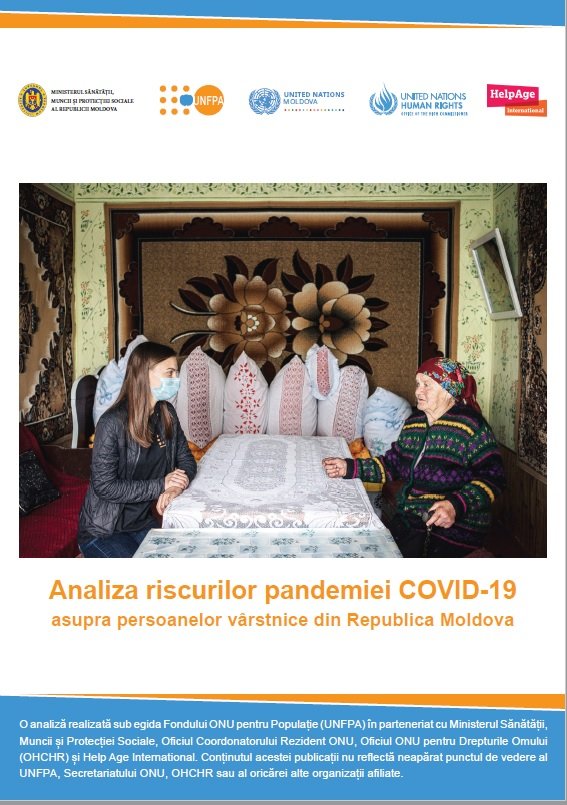
- As the number of people infected with COVID-19 in Moldova is growing, the older people are at higher risks of infection, poverty, poor access to basic goods and services, gender-based violence, mental health issues, discrimination, isolation.
- Older people have fewer means of personal protection. Data collected during the emergency period show that about a quarter of the older people did not have protective masks.
- In addition to physical isolation, the older people were digitally isolated, as only 10% of them use information technologies and the Internet on a regular basis.
- The inactivity rate is on the rise, especially among older people in rural areas, who are not employed in the agricultural and public sectors. During the pandemic, commuting to work is more problematic for the elderly, and remote work is only available to one in ten older persons.
- Older people’s isolation may increase the profound negative effects on their health and well-being.
In partnership with HelpAge and the Ministry of Health, Labour and Social Protection, UNFPA is implementing an intergenerational programme aiming at building digital skills of older persons by donating mobile phones and engaging young people in training older persons on how to use information technologies to communicate with family members or how to access public services that are available online.
For more details, you can watch the recorded event here.
The Analysis of the Risks Posed by COVID-19 on the Older Persons in the Republic of Moldova can be accessed here.
